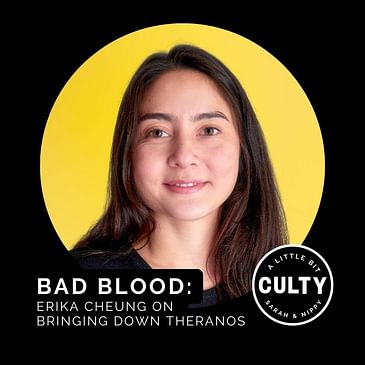This episode is sponsored by BetterHelp. Give online therapy a try at betterhelp.com/culty and get on your way to being your best self.
Erika Cheung arrived at the Theranos corporate headquarters at just 22 years old as a newly minted college grad. At the time, the idealistic chemist and biologist saw Elizabeth Holmes just as so many others did: As a visionary on the verge of completely disrupting the healthcare paradigm. As it would turn out, Erika’s honeymoon phase at her dream gig lasted all of seven months. That’s when she quit her job in the Theranos lab, bought a burner phone, and blew the whistle on one of the biggest con artists in American business history. The Theranos story has always seemed more than a little bit culty to us, so we jumped at the chance to chat with Erika about her experience. After all, sometimes a culty situation starts out looking like a promising job offer with a ‘visionary’ who turns out to be a faux humanitarian. (We’ve been there, Erika. Oh…have we been there.)
About Erika Cheung:
Erika was born in Los Angeles, CA. She spent most of her education homeschooled, but started community college at age 14 and then went on to obtain a dual degree in Linguistics and Molecular and Cell Biology from UC Berkeley.
She was one of the key whistleblowers that reported Theranos to health regulators. Her report subsequently led to the shut down of Theranos' clinical lab which prevented the company from providing false medical results to thousands of patients. This account is covered in the book Bad Blood by John Carreryrou, 60 Minutes, the ABC Podcast: The Drop Out, and Alex Gibney's documentary The Inventor: Out for Blood in Silicon Valley.
Erika is the executive director of Ethics in Entrepreneurship, a non-profit whose mission is to foster ethical questioning, culture, and systems in startups and startup ecosystems. She's currently working towards obtaining her ACFE-certified fraud examiner's license to educate others on fraud prevention strategies and develop programs to protect business stakeholders from high-risk ventures. She is also an advisor to several whistleblower advocacy organizations to support individuals who may
She is also an avid mixed martial artist in her free time and hopes to support efforts that leverage martial arts to empower trauma survivors.
Also…Let it be known far and wide, loud and clear that…
The views and opinions expressed on A Little Bit Culty do not necessarily reflect the official policy or position of the podcast. Any content provided by our guests, bloggers, sponsors or authors are of their opinion and are not intended to malign any religion, group, club, organization, business individual, anyone or anything. Nobody’s mad at you, just don’t be a culty fuckwad.
OTHER LINKS:
Check out our lovely sponsors
Join ‘A Little Bit Culty’ on Patreon
Get poppin’ fresh ALBC Swag
Support the pod and smash this link
Cult awareness and recovery resources
CREDITS:
Executive Producers: Sarah Edmondson & Anthony Ames
Production Partner: Citizens of Sound
Producer: Will Retherford
Writer & Co-Creator: Jess Tardy
Theme Song: “Cultivated” by Jon Bryant co-written with Nygel Asselin

